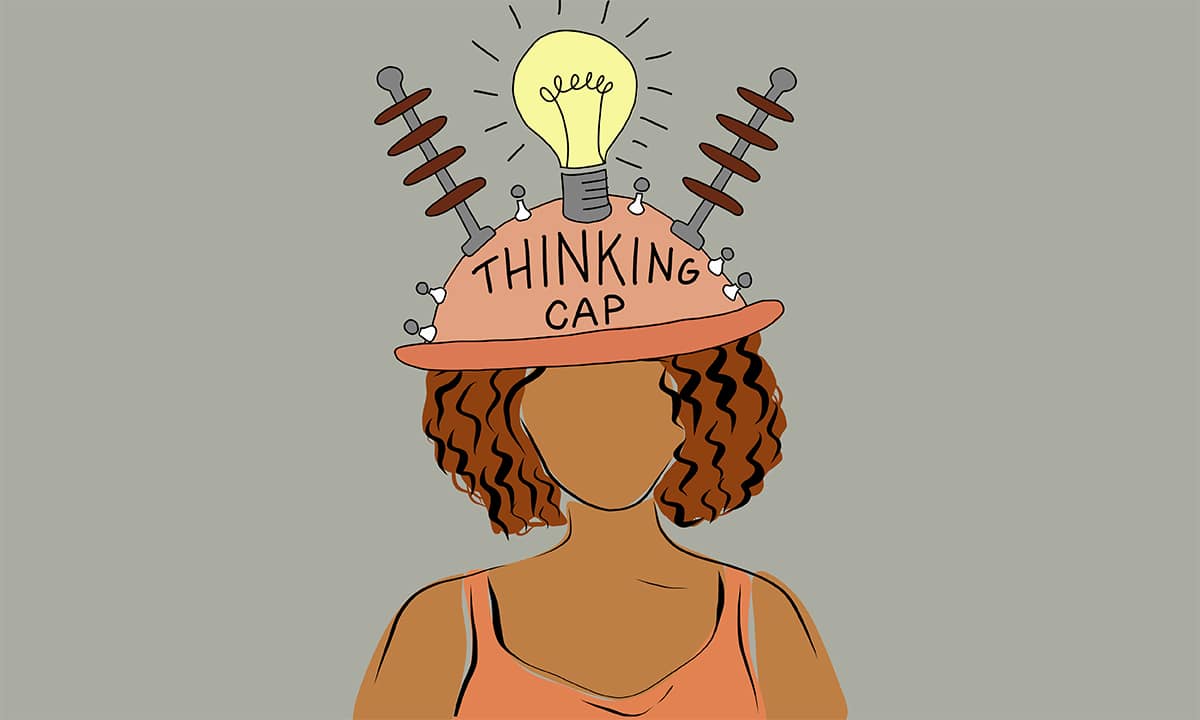

AB Boyd | Cartoonist
Crowdsourcing request: what are the steps in the conversion process from true believer to vaccine abolitionist?
by Toby Rogers | Nov 16, 2022
If a parent witnesses a vaccine injury first-hand they often convert fairly quickly from true believer to vaccine abolitionist (although even in that case I believe that there are several steps in the process including: denial, dissonance, initial research, rigorous research, anger, and evangelical abolitionism).
But what are the steps in the conversion process for people who have not witnessed vaccine injury first-hand? I’ve been wanting to figure this out for several years now and it’s surprisingly difficult. So I’ve decided to turn to you, my beloved readers, to see if we can figure this out together.
The pharmaceutical industry obviously spends a ton of money figuring out the steps in the decision-making process in connection with vaccines. They develop scripts for every type of “vaccine refusal” and test particular words in focus groups in order to figure out which ones are the most persuasive. Pharma’s granular insights into the human mind, emotions, and instincts give them tremendous power.
But it strikes me that we can figure out the same granular conversion/decision-making process on behalf of actual science and health. If we can figure this out everything gets easier — from our political work to the conversations we have with friends in the grocery store parking lot.
My hunch is that there are probably 7 to 10 steps in the conversion process. And I imagine that there is a particular question/intervention appropriate to each step to support the evolution to the next step.
As far as tone, questions (that put the work on them) are more effective than declarative statements (that put the work on us). I think the time between each step is weeks or months (certainly not hours or days). Also, boundaries are good. We have a moral responsibility to share the information that we wish we had been told. But, ultimately each person has to make his/her own decision.
I’ve been working on this article for a few days and I’ve come to see the mainstream view as akin to a dining room table. The legs of the table are arguments from misplaced authority — “doctors can be trusted”, “scientists can be trusted”, “government would never do that to us”, and “the news media basically tell the truth.” The plates on the table represent the belonging (cultural, financial) that comes from participating in the Pharma lies. And most people approach the table with a childlike view of the world — that the powerful are there to help and would never do anything to hurt us.
Our challenge is to show that every part of that paradigm is untrue — AND THEN INVITE THEM TO JOIN US AT OUR TABLE that is characterized by real food, actual health, robust science, critical thinking, and genuine community and connection.
Below is my first attempt at figuring out the steps in the conversion process. In the comments that follow, I’m hoping that you can improve upon this model considerably.
Level: -7
Thought-terminating cliché: “No one has ever been injured by a vaccine.”
Commentary: Absolutes are pretty easy to counter. At this step one just has to get them to admit the possibility of some injury.
Question to help them move up: “What can you tell me about the 1986 National Childhood Vaccine Injury Act and the Vaccine Injury Compensation Program?”
Level: -6
Thought-terminating cliché: “Okay yeah sure, bad things happen occasionally. But it’s one in a million and the benefits vastly outweigh the harms.”
Commentary: Here the person admits the possibility of some injury but makes up a number so that it remains virtually impossible in their mind.
Question to help them move up: “Have you noticed the rise in chronic illness in children? When we were growing up no one had peanut allergies or required Epi pens. Today it seems that most children are dealing with something — asthma, allergies, autoimmune disorders, eczema, diabetes. Why do you think that is?”
Level: -5
Thought-terminating cliché: “It’s just better awareness — we’re better at detecting things these days — and probably too much screen time, video games, and junk food.”
Commentary: This one is fascinating. It’s a variation on the Candide/Pollyanna view that “this is the best of all possible worlds.” The claim is that there is no problem, it’s just that we are too sensitive, too empathetic, too good.
Question to help them move up: “From what I’ve read, over half of all kids are chronically ill. Do you really think that our parents’ generation just did not notice a problem that large? I agree that screen time and junk food contribute to the problem. Do you think there might be additional factors or do you think those are sufficient to explain the entire phenomenon?”
Level: -4
Thought-terminating cliché: “Well I imagine pesticides probably don’t help. I don’t know what I think of Roundup. However, the government would never allow them to sell it at Home Depot if it was actually bad for us. In sufficient quantities, I guess anything can cause cancer.”
Commentary: This is a child-like view that government is Santa Claus and is here to help us. Also, when someone has not really thought things through, there are many internal contradictions in how they describe their views.
Question to help them move up: “Have you researched the pesticide, Atrazine? How do you think it got approved? Did you know that the vaccines on the childhood schedule have liability protection? You literally cannot sue the company if something goes wrong. What incentives do companies have to improve product safety if they have liability protection?”
Level: -3
Thought-terminating cliché: “They would never do that to us. Doctors and scientists have a lot to lose. We owe them a debt of gratitude.”
Commentary: This is an “argument from authority” — a common logical fallacy. It’s the corporate version of the “government loves us” argument above.
Question to help them move up: “How did the thalidomide disaster (1957-1961) happen? What about the Tuskegee Syphilis Experiment (1932-1972)? Have you ever seen a drug rep. inside your doctor’s office? How do financial conflicts of interest impact decision making?”
Level: -2
Thought-terminating cliché: “No system is perfect but I don’t think vaccines are as dangerous as you think they are.”
Commentary: This is a sort of bargaining with reality. They don’t know the numbers but they are desperately trying to stay in the cocoon of ignorance.
Question to help them move up: “Have you ever met the parents of a vaccine injured child? Do you want me to introduce you to some? If I invited you to a conference on this topic would you join me and listen to the speakers with an open mind?”
Level: -1
Thought-terminating cliché: “Okay, yeah, there are harms, and those are tragic. But the benefits are so enormous. Vaccines have saved hundreds of millions of lives over the last 100 years.”
Commentary: This is a Fairyland Risk/Benefit Argument that is not based on any actual study, it’s just clichés and wishful thinking. It represents someone clinging to the shore of comfortable lies before setting sail for the truth.
Question to help them move up: “If I brought you a book on this topic would you be willing to read it and give me your thoughts?” [And then give them Dissolving Illusions, Turtles All the Way Down, Unvaccinated, or Miller’s Review of Critical Vaccine Safety Studies.]
Level: 0
Worldview: “I don’t like the CDC’s childhood vaccine schedule. It’s too many, too soon. But some vaccines are necessary. We’re going to go with an alternative vaccine schedule.”
Commentary: This is a great start and should be highly praised. But there is still no science here — just a different bargain with a system that is fundamentally flawed.
Question to help them move up: “I’m so glad that you are avoiding some of these vaccines. But how do you calculate the risk from each particular vaccine vs. the risk from the disease itself? Did you know that none of the vaccines on the U.S. schedule were tested against an inert saline placebo? If I gave you an article on this topic would you be willing to read it and share your thoughts?” [And then, if they are agreeable, give them the 2018 ICAN Letter to HHS or direct them to my article, “Why I’m an Abolitionist.”]
As someone is beginning to see the truth, we should invite them to subscribe to The Defender and watch The Highwire. You can also invite someone to your house for a movie night to watch Vaxxed, Vaxxed II, 1986 The Act, or any of your other favorite medical freedom movies.
Level: +1
Worldview: “I think I’m ready to stop vaccinating my kid, but how do I protect him/her from disease and what do I do if s/he gets sick?”
Commentary: When one disconnects from the Pharma Death Cult Society there is a period of transition as one learns about the parallel society of alternative medicine. We should do everything we can to support this transition and help people to find connections with their new tribe.
Question to help them move up: “Yes we use allopathic medicine for emergencies — broken bones and that sort of thing. But we find that functional and integrative medical doctors are so much better for everything else. This is a fantastic time to find alternative providers who are a good fit for your values.” [And then you can share names of healers who you like. Jim Meehan, James Neuenschwander, and Larry Palevsky are beloved doctors in the movement. For anything Covid-related, FLCCC is doing brilliant work. I’m also a huge fan of the work of Dr. David Brownstein and the Health & Wellness books published by Chelsea Green.]
Level: +2
Worldview: “I’ve had it with the corruption and lies of the pharmaceutical industry and the government. But there is nothing that we can do — they are so powerful.”
Commentary: Even once people come over to our side there is still a learned-helplessness that must be overcome.
Question to help them move up: “Corrupt systems are brittle and they can fall apart quickly. There are so many groups working on this — state medical freedom groups, ICAN, Stand for Health Freedom, CHD, NVIC. They would all welcome your involvement and support.”
Level: +3
Worldview: “This is a genocide. How do we stop it?”
Commentary: This is the reality, the red pill. If we are to survive as a species, we must act.
Reply: “Welcome to the revolution. We’ve been waiting for you. The messed up system that we are all working to overthrow is centralized. We are decentralized. So what are your talents? And how can you best apply your creativity and wisdom to overthrowing the system? Let’s freakin’ go!!!!! 🙌”
Questions for you to answer in the replies, if you so choose:
1. Have I characterized the conversion process correctly or is there a completely different framework/metaphor/process for thinking about how someone changes their mind on this topic? e.g.:
- Is it possible that it’s not a linear progression but rather a single catalytic moment — such as having coffee with the parent of a vaccine-injured child for the first time — that changes hearts and minds?
- Do we need a different message for each of the 16 different Myers-Briggs Personality Types and/or 9 different Enneagram types?
2. If the overall framework is correct:
- Are these the correct steps or would you change any of them?
- Are these the correct interventions/questions or would you change any of them?
3. Basically, what’s your theory of change and how do we best put that into practice?
Subscribe to uTobian
Contact Us
Follow Us
Privacy Policy
Sitemap
© 2024 FM Media Enterprises, Ltd.




Good article. Exposure is important. Advertisers try to get their product name into listeners ears at least 3-5x to get it to stick in their minds. Repetition until it sticks may be even more important than a step by step idea. Some ways of saying something stick where others do not. You’re absolutely right not to be argumentative at all because that forces the person to become a defensive opponent who cannot hear what you have to say anyway. I would talk about pediatritians and media figures alike who say things like “we’re just trying to get as many shots in arms as we can.” It is such a mask off moment that they couldn’t care less about YOUR child’s health. If they know doctors personally or went to school with people who became doctors, then they probably already know these people don’t spend their off-days reading the up-to-date lit.